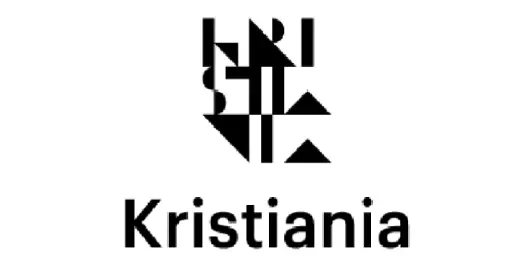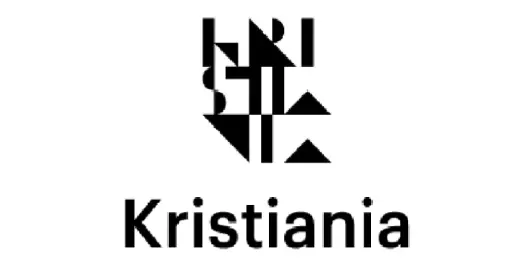Ledig stilling på Universitetet i Oslo
Blindern og Urbygningen (Foto: Wikimedia og Colourbox)
PhD Research Fellowship in bioinformatics
Deadline 15.02.2019
About the position
Universitetet i Oslo
The University of Oslo is Norway’s oldest and highest rated institution of research and education with 28 000 students and 7000 employees. Its broad range of academic disciplines and internationally esteemed research communities make UiO an important contributor to society.
The Department of Informatics (IFI) is one of nine departments belonging to the Faculty of Mathematics and Natural Sciences.
IFI is Norway’s largest university department for general education and research in Computer Science and related topics.
The Department has more than 1400 students on bachelor level, 600 master students, and over 240 PhDs and postdocs. The overall staff of the Department is close to 370 employees, about 280 of these in full time positions. The full time scientific staff is 75, mostly Full/Associate Professors.
Position as PhD Research Fellowship in bioinformatics is available at Department of Computer Science, University of Oslo.
The fellowship period is either 3 or 4 years, where a choice of four years would imply 3 years devoted to research education combined with a compulsory work load of 25% that consists of teaching and supervision duties and research assistance.
Starting date as soon as possible.
Job description
PhD project: computational solutions for genome-guided cancer treatment . Cancer biology has traditionally focused on individual mechanisms and cell contexts. Even with the initial wave of high-throughput data generation, whole-genome omics experiments were expensive and typically limited to a few samples and proteins. With increased affordability of high-throughput data generation, both research, diagnostics and treatment is starting to utilize larger sets of molecules and cell contexts. However, even a set of molecules/contexts is hardly a good representation of the biological reality - cell types fall very naturally into a deep hierarchy reflecting differentiation and function [and similarly molecules are not a uniformly distinguished set - they fall natural in a hierarchy of classes]. As biological mechanisms are mapped at an increasingly fine resolution, the importance of representing and exploiting such structure becomes increasingly important. Several initiatives in this direction are in progress. One such initiative is the Protein atlas, which is systematically building integrated knowledge at several levels in a systematic way. Another very ambitious attempt is the forthcoming Human Cell Atlas that promises to deliver a giant leap in terms of cell-level resolution of -omics data. The aim of the current project is to develop insight and methodology that will allow the hierarchy of cell state and function to be exploited for improved analysis of multi-omics cancer data when data such as from the sources listed above is leveraged.
Cancer patients show heterogeneous responses to current treatment regimes, frequently in the sense that only an undefined subset of patients may experience complete or partial response. The overall aim of genome-driven oncology is to utilize the unique and rich molecular portraits of each tumor and its germline background to properly distinguish responders versus non-responders, and ultimately also to understand the nature of this distinction.
Several large-scale international sequencing initiatives have now produced a wealth of data with respect to genomic aberrations, gene and protein expression patterns, and landscape of epigenetic modifications of individual tumor samples. Many of these samples are also associated with extensive clinical records regarding treatment regimes (e.g. radiation, chemotherapy, targeted) and survival. The combination of integrating information from the rich publicly available tumor aberration data with the emerging tissue resources will enable completely novel inference approaches to tumor diagnostics and therapy.
We have previously developed computational platforms for statistical analysis of genomic tracks as well as the clinical interpretation of individual cancer genomes. The aim of this PhD project is to build upon these existing efforts, yet with a particular emphasis on the analysis of tissue-specific expression patterns in non-diseased versus tumorigenic states, as well as a characterization of the subcellular localization of the cancer proteome.
The candidate will be guided by a group of supervisors with broad competence in bioinformatics, machine learning and immunology:
- Eivid Hovig, Professor, Department of Informatics, UiO
- Sigve Nakken, scientist, PhD, Department of Tumor Biology, Oslo University Hospital
- Geir Kjetil Sandve, Associate professor, Department of Immunology, UiO
Qualification requirements
- Applicants must hold a Master’s degree or equivalent in bioinformatics, informatics, statistics or a related field.
- Prior knowledge and/or practice of bioinformatics is considered an advantage.
- Experience with integrated -omics analysis is considered an advantage.
- The candidate should be motivated towards cancer precision medicine, and ideally have some experience with NGS sequence analysis
- Fluent oral and written communication skills in English
The Faculty of Mathematics and Natural Sciences has a strategic ambition of being a leading research faculty. Candidates for these fellowships will be selected in accordance with this, and expected to be in the upper segment of their class with respect to academic credentials. The purpose of the fellowship is research training leading to the successful completion of a PhD degree.
The fellowship requires admission to the PhD programme at the Faculty of Mathematics and Natural Sciences. The application to the PhD programme must be submitted to the department no later than two months after taking up the position. For more information see:
http://www.uio.no/english/research/phd/
http://www.mn.uio.no/english/research/phd/
We offer
- Salary NOK 449 400 – 505 8020 per year depending on qualifications and seniority as PhD Research Fellow, (position code 1017)
- Attractive welfare benefits and a generous pension agreement, in addition to Oslo’s family-friendly environment with its rich opportunities for culture and outdoor activities
How to apply
The application must include:
- Cover letter. Statement of motivation and research interests
- CV (summarizing education, positions and academic work - scientific publications)
- Copies of educational certificates, transcript of records and letters of recommendation
- Documentation of English proficiency
- List of publications and academic work that the applicant wishes to be considered by the evaluation committee
- Names and contact details of 2–3 references (name, relation to candidate, e-mail and telephone number)
The application with attachments must be delivered in our electronic recruiting system, please follow the link “apply for this job”. Foreign applicants are advised to attach an explanation of their University's grading system. Please note that all documents should be in English (or a Scandinavian language).
Applicants may be called in for an interview.
Formal regulations
Please see the guidelines and regulations for appointments to Research Fellowships at the University of Oslo.
No student can be appointed for more than one PhD Research Fellowship period at the University of Oslo.
According to the Norwegian Freedom and Information Act (Offentleglova) information about the applicant may be included in the public applicant list, also in cases where the applicant has requested non-disclosure.
The appointment may be shortened/given a more limited scope within the framework of the applicable guidelines on account of any previous employment in academic positions.
The University of Oslo has an agreement for all employees, aiming to secure rights to research results etc.
Contact information
- Professor Eivind Hovig, e-mail: ehovig@ifi.uio.no
For technical questions about the recruitment system, please contact HR Adviser Torunn Guttormsen, tel. +47 22854272, e-mail: t.s.guttormsen@mn.uio.no
Apply for position













